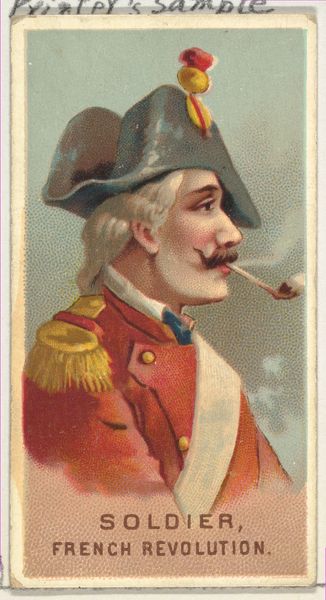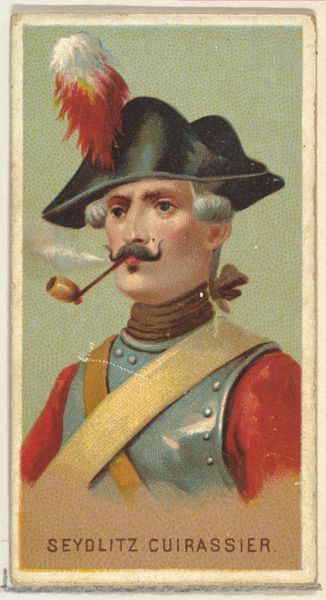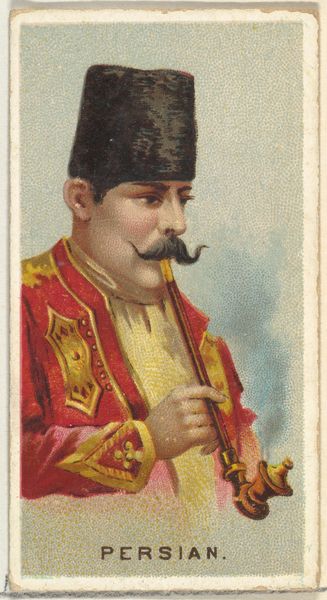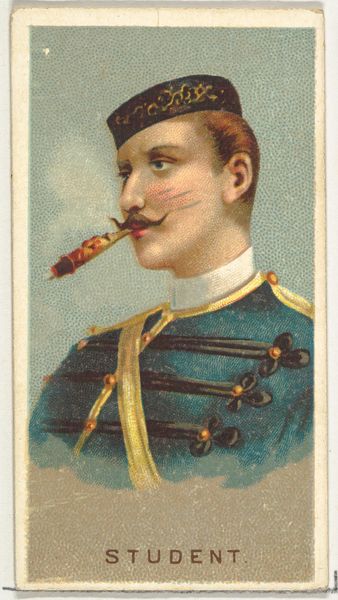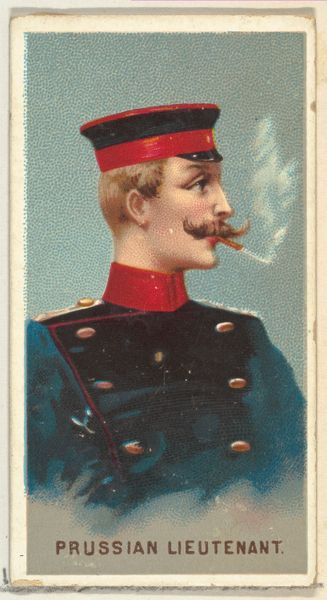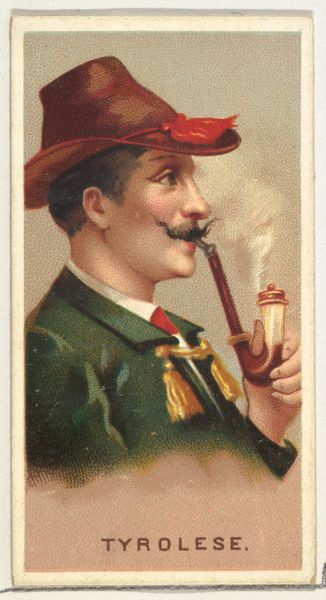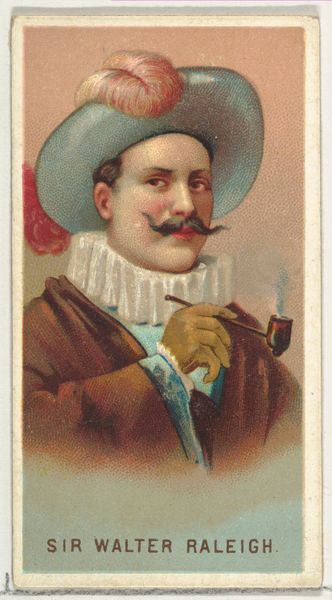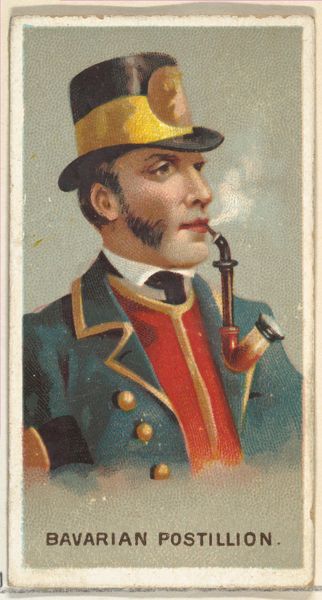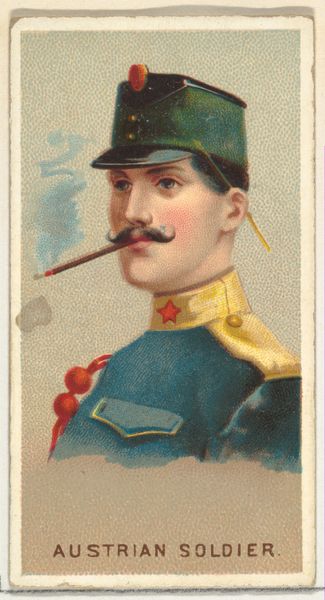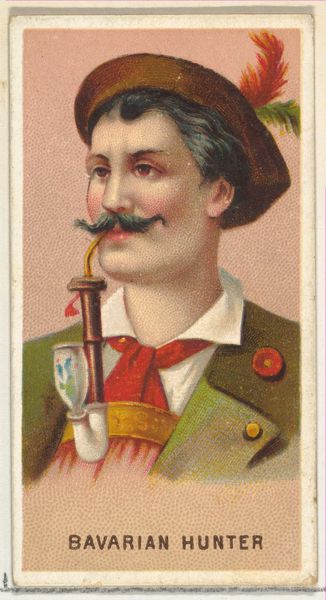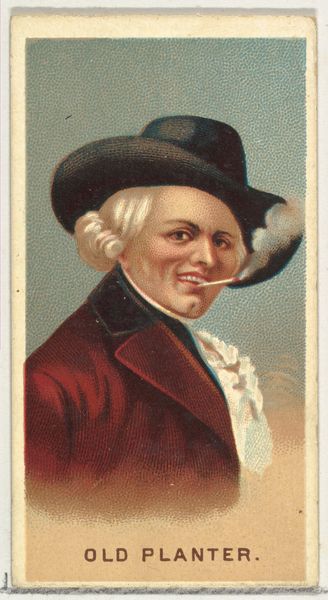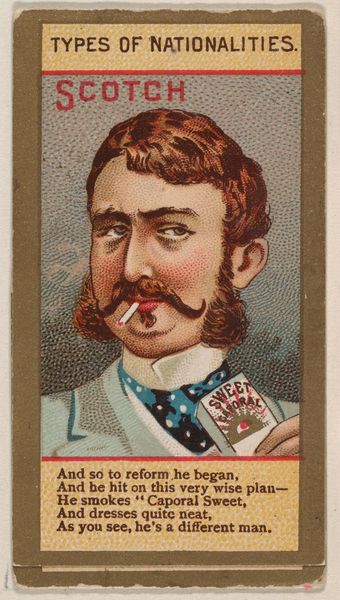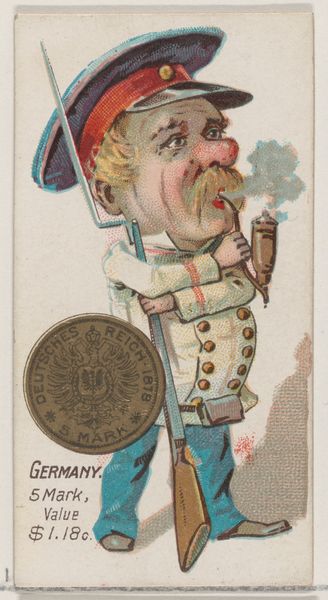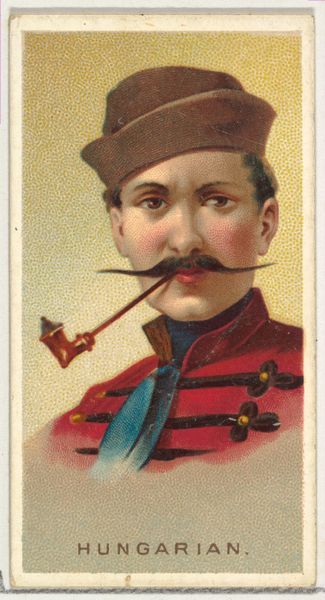
Prussian Officer of 1725, from World's Smokers series (N33) for Allen & Ginter Cigarettes 1888
0:00
0:00
drawing, print
#
drawing
#
toned paper
# print
#
oil painting
#
coloured pencil
#
coffee painting
#
framed image
#
men
#
animal drawing portrait
#
watercolour illustration
#
portrait art
#
watercolor
#
fine art portrait
#
profile
Dimensions: Sheet: 2 3/4 x 1 1/2 in. (7 x 3.8 cm)
Copyright: Public Domain
Curator: This small print, "Prussian Officer of 1725," comes from the "World's Smokers" series created by Allen & Ginter Cigarettes in 1888. Part of a larger collectible set, it resides today at the Metropolitan Museum of Art. Editor: My first thought is: striking use of color for such a tiny portrait. The vibrant blue of the coat pops right out against the muted background and… well, the pink of his face! He seems quite pleased with himself. Curator: Indeed. The Allen & Ginter company sought to elevate the experience of consuming their product. Cigarette cards served not only as stiffeners for the packaging, but more importantly, as a marketing tactic to cultivate brand loyalty through collecting. Editor: Right, and it's a great example of commodity culture, linking the pleasures of smoking with an image of refined authority and even a dash of exoticism through this "Prussian Officer." The printing process itself, likely involving lithography, allowed for mass production of these intricate designs, and we see a level of detail and coloration that adds value. Curator: Absolutely. Beyond the simple advertisement, these cards reveal prevailing social attitudes towards historical figures. The choice to depict a Prussian officer signifies both military might and perhaps even a hint of European sophistication that appealed to an American audience eager to define its own identity. Editor: The uniform details—the cut of the coat, the decorative frogging, and trim—speak to the labor involved in tailoring. These elements contributed to an ideal of status which were, in turn, marketed directly with and alongside Allen & Ginter's manufactured tobacco. It is fascinating. Curator: Very insightful. Ultimately, this "Prussian Officer" card acted as a social and historical artifact, representing 19th-century America's fascinations, desires, and even its strategies for commerce and culture. Editor: Exactly, and looking at it today encourages us to consider how materials like paper and ink were used to forge those very persuasive links between history, power, and, well, a good smoke!
Comments
No comments
Be the first to comment and join the conversation on the ultimate creative platform.
